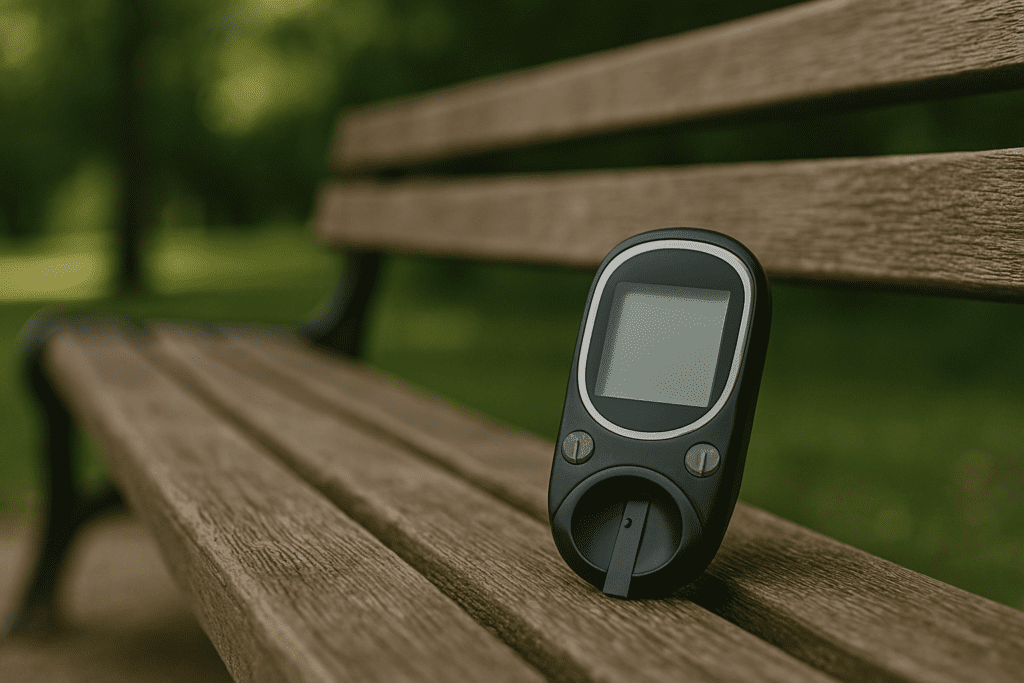Effective diabetes management is both a science and a lifestyle. With millions of people worldwide affected by this complex condition, understanding the intricacies of diabetes mellitus management and treatment is essential. While insulin therapies, blood glucose monitoring, and medications remain cornerstones of care, science continues to uncover deeper insights into how we can improve outcomes, enhance quality of life, and promote long-term health for those living with diabetes. The conversation is no longer just about keeping numbers in range; it’s about sustainable strategies for living with diabetes day after day, year after year.
You may also like: How Diabetes Affects the Brain: Understanding Brain Fog, Memory Loss, and Mental Confusion from High Blood Sugar
For those navigating this journey, the question isn’t merely, “How can you control diabetes?” but rather, “How can I manage diabetes in a way that supports my overall well-being, empowers me, and fits into the rhythm of my life?” This article explores evidence-based strategies that go beyond the basics to provide real tools and insights for diabetes management in the modern age. From lifestyle modifications to emerging technology, dietary science, and psychological resilience, the latest research sheds light on what truly works for long-term success in diabetes living with diabetes.

Understanding the Science Behind Diabetes and Blood Sugar Regulation
To appreciate the full scope of diabetes mellitus management and treatment, it’s important to first understand how the body regulates glucose. In healthy individuals, insulin—a hormone produced by the pancreas—facilitates the transport of glucose into cells for energy use or storage. In type 1 diabetes, the immune system destroys insulin-producing cells, leading to a complete lack of insulin. In type 2 diabetes, insulin is still produced but becomes less effective due to insulin resistance.
This distinction is critical because it informs the treatment approach. Management of diabetes mellitus is not one-size-fits-all. It demands a deep understanding of physiology, lifestyle interactions, and patient-centered care. Chronic hyperglycemia can damage blood vessels, nerves, and organs over time, leading to complications such as neuropathy, nephropathy, and cardiovascular disease. Therefore, managing blood sugar isn’t just about immediate effects but about preventing long-term consequences. Science-backed diabetes management strategies target this cascade at every point, from preventing spikes to improving insulin sensitivity and reducing inflammation.
Personalized Nutrition: The Foundation of Blood Sugar Control
One of the most powerful tools for managing diabetes long-term is personalized nutrition. Unlike generic dietary advice, personalized plans are built on individual responses to food, lifestyle preferences, and even genetic predispositions. Research has consistently shown that carbohydrate type and quantity significantly affect blood glucose levels. Simple carbohydrates, such as refined grains and sugary beverages, are rapidly absorbed, leading to spikes. Conversely, complex carbohydrates paired with fiber, healthy fats, and protein have a blunted glycemic effect.
Additionally, the timing of meals and macronutrient distribution matters. Studies indicate that consuming a higher proportion of calories earlier in the day and including protein at every meal helps reduce postprandial glucose spikes. Emerging evidence even supports the use of continuous glucose monitors (CGMs) to tailor dietary interventions. DiasCom for diabetic patients, a data-driven dietary platform, is an example of how AI and real-time monitoring can help diabetics track their glucose responses to specific meals, ultimately informing better choices.
In practice, this means focusing on whole, minimally processed foods, monitoring portion sizes, and using real-time data to guide meal planning. For those living with diabetes, this approach restores a sense of control, turning mealtime into a moment of empowerment rather than uncertainty.
Exercise as a Metabolic Enhancer: Beyond Weight Loss
Physical activity is another key pillar in the management of diabetes mellitus. But the benefits extend far beyond calorie burning or weight control. Exercise enhances insulin sensitivity, increases glucose uptake by muscle cells, and reduces systemic inflammation. Importantly, these effects are both acute and cumulative. A single bout of moderate-intensity exercise can improve glucose control for up to 48 hours, while regular activity offers lasting benefits.
The type and timing of exercise also matter. Aerobic activities like brisk walking, swimming, and cycling improve cardiovascular health and support glucose metabolism, while resistance training increases muscle mass, which serves as a glucose reservoir. Combining both yields synergistic effects. Moreover, research shows that breaking up sedentary time with short bouts of movement—even standing or walking for a few minutes every hour—can reduce post-meal glucose levels.
For those wondering, “How can I manage diabetes when I don’t have time for the gym?”, it helps to reframe movement as medicine. Walking after meals, engaging in household chores, or using resistance bands at home are all effective strategies. Consistency, rather than intensity, is the key to reaping metabolic benefits.
Harnessing Technology: From Glucose Monitors to Digital Therapeutics
Technology has revolutionized diabetes management by offering real-time data, personalized feedback, and remote monitoring. Continuous glucose monitors (CGMs) and smart insulin pens are now mainstream tools that not only track glucose but also provide insights into patterns, trends, and triggers. The rise of apps like DiasCom for diabetic patients, which sync with wearable devices, allows individuals and clinicians to adjust treatments based on dynamic, personalized data.
Telemedicine has also expanded access to endocrinologists, dietitians, and diabetes educators, particularly in underserved areas. Digital therapeutics—clinically validated software programs—are emerging as effective tools for behavior change. For instance, structured online programs have been shown to improve glycemic control and reduce A1C levels by guiding users through modules on diet, stress, sleep, and activity.
Incorporating these tools into daily life supports autonomy and self-efficacy. Instead of guessing whether a certain food will cause a sugar spike, a person can observe the results in real time. This transforms management from reactive to proactive and empowers those living with diabetes to make informed, data-driven decisions.
Psychological Resilience and Emotional Health in Diabetes Care
Living with diabetes is not just a physical challenge but also a profound emotional journey. Depression, anxiety, and diabetes-related distress are common among both type 1 and type 2 diabetics. Studies reveal that psychological well-being directly affects self-care behaviors, adherence to medication, and glycemic control. Therefore, any comprehensive approach to diabetes management must include emotional support and mental health care.
Cognitive-behavioral therapy (CBT), mindfulness practices, and peer support have all demonstrated benefits in managing the emotional toll of diabetes. Techniques like journaling, guided breathing, and structured goal-setting can reduce stress-related glucose fluctuations. Additionally, working with a health psychologist or joining diabetes support groups can provide validation, reduce isolation, and offer practical coping strategies.
Healthcare providers should screen regularly for emotional distress and integrate behavioral health into standard care. For patients, prioritizing mental health isn’t just about feeling better; it’s about functioning better in all aspects of diabetes self-management. The question of “how can you control diabetes” must include not just physical tools but emotional resilience.
The Role of Medication and Innovations in Pharmacotherapy
Pharmacological treatment remains a core aspect of diabetes mellitus management and treatment. However, the landscape has evolved significantly in recent years. Beyond insulin and metformin, new classes of drugs—including GLP-1 receptor agonists, SGLT2 inhibitors, and DPP-4 inhibitors—offer targeted mechanisms of action, often with additional benefits such as weight loss and cardiovascular protection.
These advances align with a more personalized approach to care. For instance, GLP-1 agonists can slow gastric emptying and increase satiety, making them particularly effective for overweight patients. SGLT2 inhibitors promote glucose excretion through urine and have been shown to reduce heart failure risks. The choice of therapy is now guided not just by blood sugar levels but also by comorbidities, patient preferences, and risk profiles.
It’s essential that patients understand how their medications work, potential side effects, and the importance of adherence. Educational tools, including pharmacist-led interventions and digital reminders, can support this. By demystifying pharmacotherapy, patients are more likely to engage in shared decision-making, enhancing both satisfaction and outcomes in long-term diabetes management.
Sleep, Circadian Rhythms, and Metabolic Health
Sleep is often overlooked in discussions of diabetes care, yet it plays a crucial role in glucose regulation and insulin sensitivity. Poor sleep—whether due to insomnia, sleep apnea, or irregular schedules—has been linked to higher A1C levels and increased insulin resistance. The body’s circadian rhythm regulates hormone release, appetite, and energy metabolism, and disruptions to this rhythm can lead to metabolic imbalances.
Research shows that even partial sleep deprivation can impair glucose tolerance the next day. Sleep apnea, which is prevalent among people with type 2 diabetes, leads to intermittent hypoxia and heightened sympathetic activity, both of which exacerbate insulin resistance. Screening for and treating sleep disorders, therefore, is a vital but underutilized strategy in diabetes care.
Good sleep hygiene practices—such as maintaining a regular sleep schedule, limiting screen time before bed, and creating a dark, quiet sleep environment—can make a significant difference. For those wondering how to manage diabetes beyond food and exercise, optimizing sleep is a potent, science-backed intervention that deserves greater emphasis.
Social Determinants and Health Equity in Diabetes Care
Diabetes doesn’t occur in a vacuum. Socioeconomic factors, access to healthcare, food security, education, and cultural beliefs all influence diabetes management and outcomes. A holistic approach to care recognizes these determinants and works to address barriers to optimal health.
For example, food deserts limit access to nutritious foods, while low health literacy may impede understanding of complex treatment regimens. Programs that provide culturally relevant education, sliding-scale care, and community-based interventions have shown promise in bridging these gaps. Similarly, tools like DiasCom for diabetic patients can help democratize access to precision care by offering insights regardless of geography or income level.
Healthcare systems must prioritize equity by tailoring interventions to individual circumstances. This includes offering language-specific resources, training providers in cultural competency, and integrating community health workers into care teams. When we ask, “How can I manage diabetes in a sustainable way?”, the answer must account for not just biology but also the lived environment.
Looking Ahead: Preventive Strategies and Emerging Research
Prevention is the ultimate goal. For those with prediabetes or high-risk factors, early intervention can halt or even reverse disease progression. Lifestyle changes, including modest weight loss, regular physical activity, and dietary shifts, have been proven to reduce the incidence of type 2 diabetes by up to 58% in high-risk populations.
Emerging research also points to the role of the gut microbiome, epigenetics, and personalized medicine in shaping diabetes risk and treatment. For example, certain microbial profiles are associated with improved insulin sensitivity, and interventions such as prebiotics and probiotics are being studied for their therapeutic potential. Advances in gene editing, islet cell transplantation, and beta-cell regeneration are also on the horizon, offering hope for more durable solutions.
Patients and providers alike must stay informed about these innovations. While not all are ready for clinical use, they signal a paradigm shift toward more personalized, precise, and preventive care. The future of diabetes management lies in this convergence of technology, biology, and human-centered care.

Frequently Asked Questions About Advanced Diabetes Management and Lifestyle Optimization
1. How can I manage diabetes more effectively beyond medication?
Beyond medication, one of the most impactful approaches to diabetes management is building a resilient lifestyle routine. For example, structured physical activity like interval walking or resistance training has been shown to improve insulin sensitivity significantly. Pairing this with mindful eating—such as using the plate method or practicing carb counting—provides greater blood sugar control. Psychological well-being also plays a role: individuals living with diabetes often find better outcomes when stress-reduction techniques like meditation or cognitive-behavioral therapy are incorporated. If you’re wondering “how can I manage diabetes” without simply relying on prescriptions, holistic routines like these often make the biggest difference.
2. What role does technology play in the management of diabetes mellitus today?
Technology is revolutionizing the management of diabetes mellitus through real-time data and predictive analytics. Continuous glucose monitors (CGMs) and smart insulin pens help users respond to subtle changes in blood sugar more precisely. Platforms like Diascom for diabetic patients are emerging to streamline care, offering integrated systems for glucose tracking, medication reminders, and physician communication. For those living with diabetes, these tools can reduce emergency visits and help maintain tighter glucose ranges. Incorporating tech into your diabetes management plan not only improves metrics but also empowers patients to take proactive roles in their health.
3. Can diabetics enjoy sweets or desserts occasionally?
Yes, with careful planning, even those living with diabetes can enjoy sweets in moderation. The key lies in understanding glycemic load and the timing of consumption. For instance, consuming desserts shortly after a fiber- and protein-rich meal can blunt glucose spikes. Additionally, diascom for diabetic patients can assist by flagging when sugar levels are stable enough for small indulgences. So while the phrase “can diabetics eat sugar” might raise alarm bells, with balanced strategies and good diabetes mellitus management and treatment, the occasional treat doesn’t have to be off-limits.
4. What are the long-term psychological impacts of living with diabetes?
Living with diabetes often involves a silent psychological burden that can go unaddressed. Over time, constant vigilance and fear of complications can contribute to “diabetes distress,” a condition distinct from depression. This emotional strain may reduce motivation for self-care and disrupt diabetes management routines. Tools like Diascom for diabetic patients now include mood tracking and mental health referrals, recognizing the psychosocial components of chronic illness. Therefore, addressing mental health is not separate from but an integral part of the management of diabetes mellitus.
5. How does sleep quality affect blood sugar control?
Poor sleep can significantly undermine your diabetes management efforts. Fragmented or insufficient sleep increases cortisol levels, which in turn promotes insulin resistance. For those wondering “how can you control diabetes” without just adjusting insulin dosages, improving sleep hygiene is a surprisingly potent strategy. Practical tips include establishing regular bedtimes, avoiding screens before sleep, and managing nocturia—common in people with diabetes. When used in combination with systems like Diascom for diabetic patients, better sleep monitoring can enhance both mental clarity and glucose stability.
6. Can diabetics safely engage in intermittent fasting?
Intermittent fasting, when properly supervised, can be beneficial—but it’s not suitable for everyone. Can diabetics safely fast? That depends on medication type, current glucose control, and comorbidities. Emerging research shows time-restricted eating may improve insulin sensitivity and reduce oxidative stress. However, during fasting windows, blood sugar levels must be closely monitored, which is where diabetes mellitus management and treatment platforms like Diascom for diabetic patients prove useful. If you’re considering fasting, it should always be initiated under clinical guidance tailored to your specific diabetes management plan.
7. How can caregivers better support someone living with diabetes?
Caregivers play a pivotal role in effective diabetes management, yet they often lack structured training. Offering help with meal planning, appointment coordination, or using apps like Diascom for diabetic patients can relieve some of the burden. Additionally, understanding the emotional complexity of living with diabetes fosters empathy and improves compliance. Caregivers should also be educated in the signs of hypoglycemia and ketoacidosis to intervene when needed. Ultimately, the question “how can I manage diabetes with support?” begins with building a knowledgeable and compassionate network around the patient.
8. What innovations are transforming diabetes mellitus management and treatment in 2025?
In 2025, diabetes mellitus management and treatment is evolving beyond reactive care. Closed-loop insulin delivery systems, also known as artificial pancreas devices, are becoming more accessible and accurate. Apps like Diascom for diabetic patients are now powered by AI that can detect patterns in glucose readings and recommend micro-adjustments in therapy. Also gaining traction is telehealth integration, which offers real-time endocrinology consultations without the need for physical visits. These developments mark a shift from reactive to predictive models, transforming how people are living with diabetes on a daily basis.
9. How can you control diabetes during travel or irregular routines?
Traveling or shifting routines can disrupt even the most disciplined diabetes management plans. Irregular meals, time zone changes, and unfamiliar foods all pose risks. However, using mobile health platforms like Diascom for diabetic patients can provide continuity through medication alerts, glucose tracking, and access to personalized strategies. Packing diabetic-friendly snacks and adjusting insulin schedules in advance helps maintain stability. The answer to “how can you control diabetes while on the move” lies in planning, adaptability, and leveraging technology.
10. Can diabetics prevent complications long-term, and how?
Preventing complications is not only possible but increasingly achievable with proactive care. Regular screenings for retinopathy, neuropathy, and cardiovascular issues are key elements of modern diabetes mellitus management and treatment. Additionally, lifestyle tweaks—like incorporating strength training or anti-inflammatory foods—have long-term protective effects. Tools like Diascom for diabetic patients offer proactive alerts and appointment reminders to ensure consistency. When someone asks, “how can I manage diabetes for the long haul?” the answer lies in early intervention, data-driven care, and maintaining both physical and emotional resilience while living with diabetes.

Sustainable Diabetes Management: Science, Self-Efficacy, and Long-Term Wellness
Managing diabetes is an ongoing commitment, not a destination. Success hinges on understanding the interplay between biology, behavior, and environment. Effective diabetes management isn’t just about blood sugar numbers; it’s about building a life that supports physical, emotional, and psychological well-being.
For anyone living with diabetes, the journey involves continuous learning, adaptation, and resilience. Tools like DiasCom for diabetic patients, CGMs, and behavioral support are changing the landscape of care, making it more personalized and proactive. The core question—”How can I manage diabetes?”—finds its answer not in a single solution but in a constellation of strategies rooted in science, compassion, and individual empowerment.
Whether you’re newly diagnosed or a long-time patient, remember that sustainable management of diabetes mellitus is within reach. With the right knowledge, support, and resources, long-term health is not only possible—it is probable. Embrace the science. Trust the process. And above all, live well with diabetes.
type 1 diabetes care, blood glucose tracking apps, insulin resistance reversal, glucose control lifestyle, diabetes self-management education, diabetic-friendly eating plans, SGLT2 inhibitors benefits, managing high A1C levels, CGM accuracy and benefits, psychological support for chronic illness, diabetic fitness programs, sleep and blood sugar connection, personalized medicine for diabetes, stress and glucose spikes, gut health and insulin sensitivity, meal timing and glucose, continuous glucose monitoring devices, virtual diabetes care, wearable tech for diabetics, glucose variability reduction
Further Reading:
Current Advances in the Management of Diabetes Mellitus
Treatment strategies against diabetes: Success so far and challenges ahead
Disclaimer: The content published on Better Nutrition News (https://betternutritionnews.com) is for informational and educational purposes only. It is not intended as a substitute for professional medical advice, diagnosis, or treatment. Always seek the guidance of a qualified healthcare professional before making any changes to your diet, nutrition, or wellness practices. The opinions expressed by authors and contributors are their own and do not necessarily reflect those of Better Nutrition News.
Better Nutrition News and its affiliates make no representations or warranties regarding the accuracy, completeness, or reliability of the information provided. We disclaim all liability for any loss, injury, or damage resulting from the use or reliance on the content published on this site. External links are provided for reference purposes only and do not imply endorsement.



